May is Mental Health Awareness Month, so let’s talk about mental health.
“Mental health is defined as a person’s state of being concerning psychological and emotional well-being.”
What makes your mental health so important is that it can affect all other aspects of your life. It impacts how you perceive situations and how you act on them. It also affects how you relate with others, deal with stress, and make healthy choices.
Joy had always been shy and reserved, but as she grew older, it became much worse. She dreaded speaking in public and so she never participated in class.

She was stuck with a feeling of smallness that only ever went away when she was all alone. If she ever had to speak out, she did it spluttering with sweaty palms and pounding heartbeats. The fear of being judged or ridiculed by her classmates overwhelmed her, and she always looked forward to being alone.
It was no wonder that she fell behind in class, and her grades dropped. Her parents began to question her about her low grades. Eventually, they got to know that Joy had social anxiety and was being bullied.
Whenever she tried to say something, her classmates would bully her, calling her names and making fun of her. And they would laugh whenever she stumbled over her words or gave a wrong answer.
Joy had been feeling helpless for a very long time. She felt as though she were trapped in her own mind, with no possibility of redemption. It wasn’t until her parents interrogated her about her low grades that she finally spoke about her social anxiety problem.
Unfortunately, this is one common factor with many people who have mental health challenges; they tend to bottle up their problems and experiences. And that’s what makes it worse.
Conversations about mental health are vital because they help bring mental health troubles to light. We need more open discussions on mental health, and here’s why:
MENTAL HEALTH ISSUES ARE EVERYWHERE
Mental health issues are on the rise and affect people from all walks of life. Shockingly, the World Health Organization reports that one in four people will experience mental or neurological disorders in their lifetime. This shows that mental health problems are more rampant than many people realize.
Anxiety disorders, depression, bipolar disorder, and substance abuse disorders are some of the most common mental health issues. These can greatly affect an individual’s life and damage their relationships, work, and physical health.
point to note
No one is immune to mental health issues. They affect people of all ages, gender, race, and socioeconomic backgrounds. While some populations are at a higher risk, it’s important to recognize that mental health issues can impact anyone.

The prevalence of mental health issues varies across the globe. For example, American Psychiatric Association says that, in the United States, one in five adults experiences a mental health issue each year. Whereas in Europe, the number is one in six, according to the ‘Health At A Glance: Europe. 2018‘ report.
Despite the growing prevalence of mental health issues, many people still hesitate to seek help or receive the treatment they need. This can be due to stigma and discrimination associated with mental health issues or a lack of resources and support.
To improve mental health, we must prioritize promoting open and honest discussions about these issues. By doing so, we can increase awareness and reduce stigma, ultimately improving the quality of life for individuals and creating a healthier, more resilient society.
HOW MENTAL HEALTH ISSUES IMPACT US
1. Your state of mental health impacts your physical health.
Mental health issues can lead to physical symptoms such as headaches, fatigue, and chronic pain. Your physical well-being can only function as well as your mental health. So, make time to improve your mental health.
2. Mental health can impact relationships.
Mental health issues can make it challenging to keep healthy relationships with friends, family, and colleagues. If you’re having problems with building healthy relationships, there could be an underlying mental issue that you need to address.
3. Mental health can impact work performance.
Mental health issues can lead to decreased productivity and job satisfaction, missed workdays, and poor job performance. You should focus on your mental health for optimal performance at work and overall success.
4. Mental health can be a barrier to education.
Mental health issues can interfere with learning and academic success. We all need to address mental health issues in students, teachers, and academicians for more success in educational pursuits.
5. Stigma around mental health is a huge problem.
The stigma surrounding mental health issues can prevent people from seeing help. That’s why we need to speak more openly about mental health to reduce stigma and break the silence culture. You are NOT weak when you ask for help. If anything, you are much stronger. Seek help when you need it, and encourage others to do so as well.
“Anyone can be affected, despite their level of success or their place on the food chain. In fact, there is a good chance you know someone who is struggling with it since nearly 20% of American adults face some form of mental illness in their lifetime. So why aren’t we talking about it?”
— Kristen Bell
6. Mental health is a public health issue.
Mental health issues have far-reaching effects on individuals and communities. Prioritizing mental health is essential for the well-being of society. We grow together when we help each other.
7. Mental health is vital for overall well-being.
Mental health is as important as physical health for overall well-being. To gain optimal health and happiness, your mental health should be at your forefront. Find what works for you: taking a walk, listening to music, meditating, exercise, cooking, and more. Knowing how you can improve your mental health will help in optimizing your overall well-being.
8. Mental health issues can lead to addiction.
We often link mental health problems to substance abuse and addiction. More conversations about mental health issues mean sensitization, and that can help prevent and treat addiction. Let’s talk about mental health in schools to raise addiction awareness.
9. Mental health is prevalent in marginalized communities.
Mental health issues are more prevalent in marginalized communities. For this reason, people in such communities usually experience gross social inequality and discrimination. Therefore, addressing mental health issues is necessary for social justice.
10. Mental health can lead to suicide.
Mental health problems are a leading cause of suicide. It’s essential to talk openly about mental health to prevent suicide and support those struggling with mental health issues.
TAKEAWAYS
Mental health impacts various aspects of our lives, from our relationships and work to our physical health and academic pursuits.
Also, mental health issues are prevalent worldwide, affecting people of all ages, genders, races, and socioeconomic backgrounds.
However, stigma and discrimination often prevent people from seeking the help they need. That’s why we need to prioritize mental health and promote open conversations to increase mental health awareness, reduce stigma, and ultimately improve the quality of life for individuals and communities.
So, by recognizing the importance of mental health and taking steps to address mental health issues, we can build a healthier, more resilient society where everyone has access to the resources and support they need to thrive.
Let’s start talking about mental health!
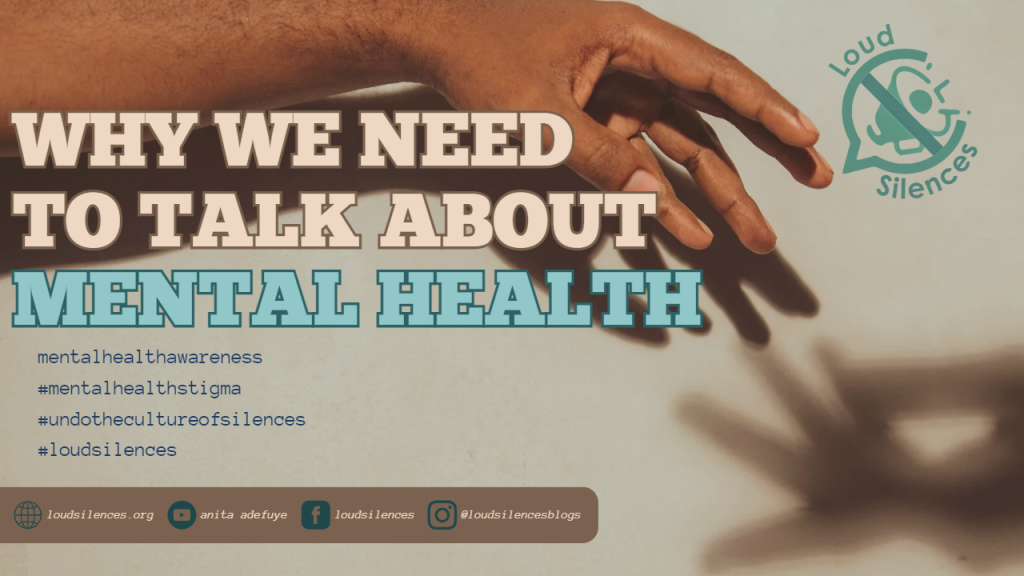
Anita Adefuye, the author, shares her story of sexual abuse, low mental health, suicide, and how she overcame them all to become who is she today, the founder of LoudSilences and more. Her book, Reve-Healed – A true story of pain, healing, and hope, is available for purchase. So, be sure to get yourself a copy today!
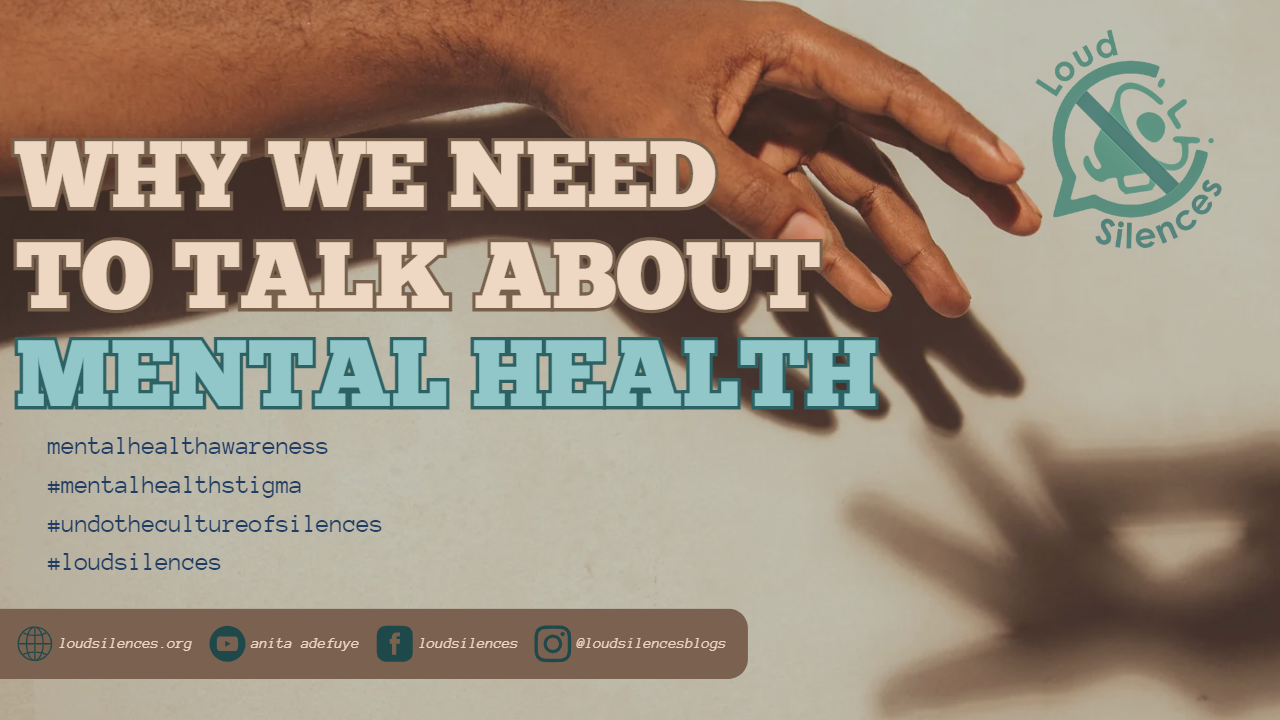
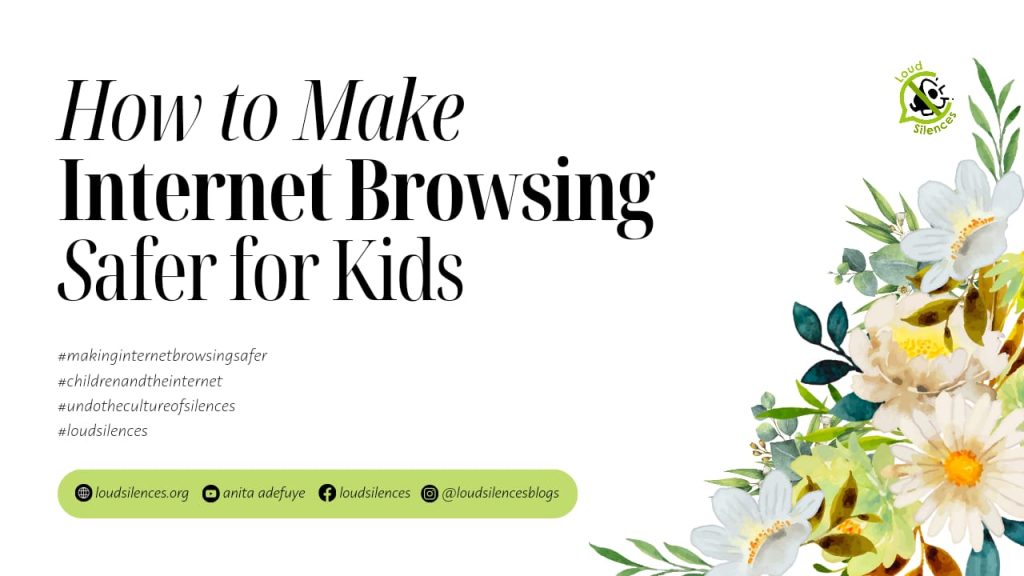
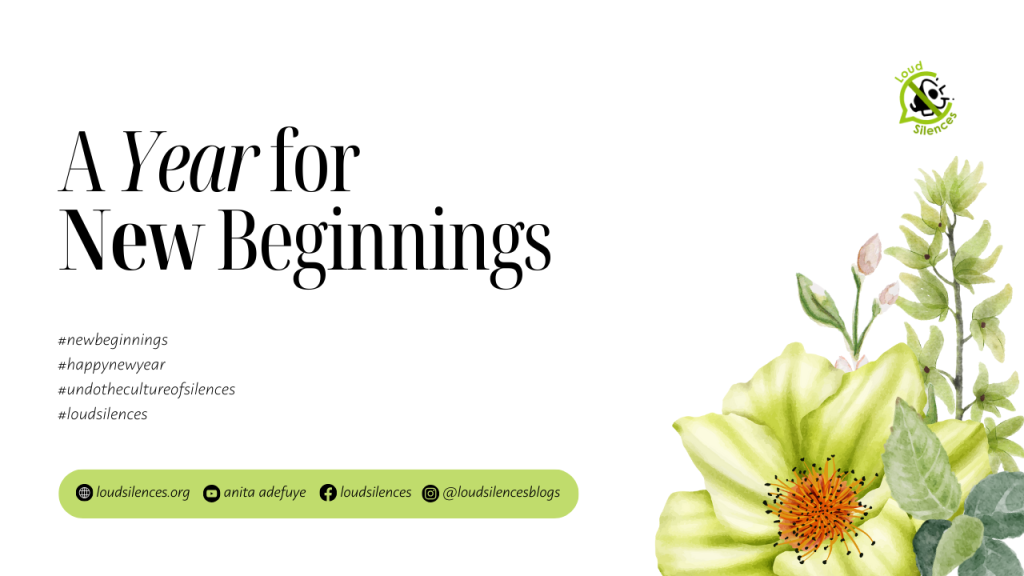

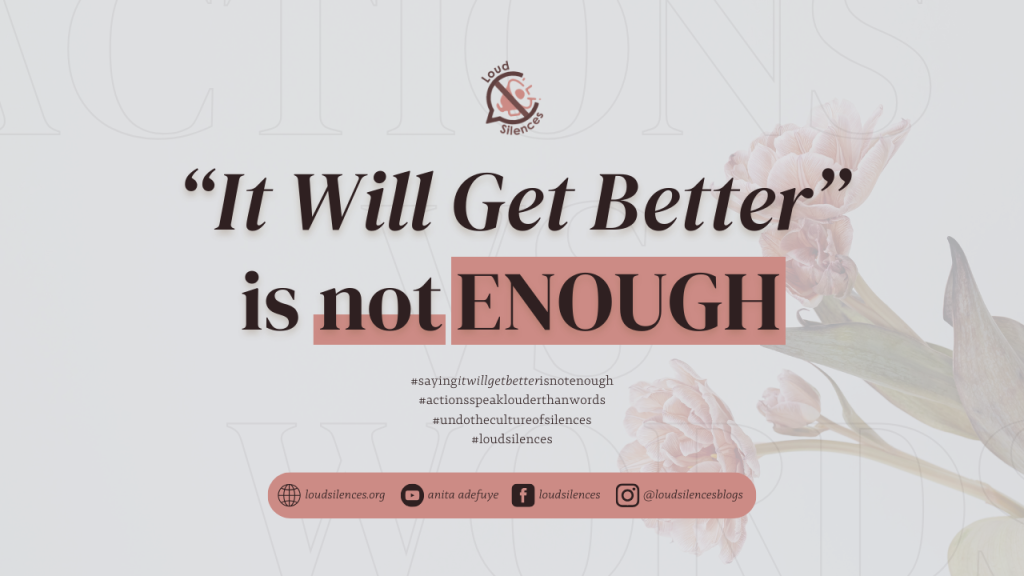


Leave a Reply